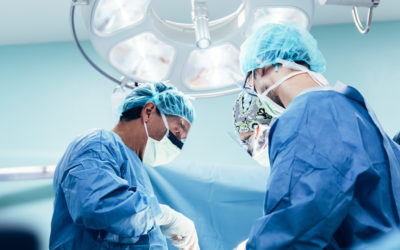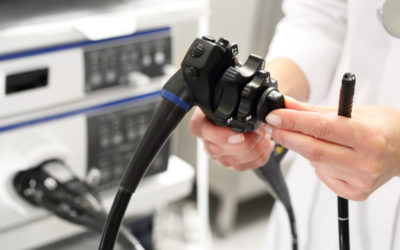Hernia
Hernias can be more than a pain in the side.
People of all ages can develop hernias. A hernia is when an internal organ or tissue bulges through an abnormal opening in the body, such as a hole or weakness in the abdominal wall. Hernias can occur at various parts of your body but are commonly found in the navel, the groin, or anywhere you have had a surgical incision. Often the hernia creates a bulge you can see and feel. Hernias are generally painful and can sometimes damage your internal organs.
Some hernias are present at birth; others develop slowly over a period of months or years. Hernias can also come on quite suddenly. Experiencing an unusual or painful bulge in the affected area is the most commonly reported symptom. Some patients also report discomfort in the abdomen and swelling in the groin that worsens with activity. Though, you could have more subtle symptoms as well – including dull aches and pains. Hernia surgery is often relatively low-risk. Many hernias require the placement of mesh in order to reinforce the weakness in the abdominal wall, which lessons the chance for the hernia to come back.
If you experience a heavy feeling in your abdomen when you bend, pain when you lift heavy objects or a lump that enlarged when you strain and disappears when you lie down, it could be a hernia. Having it treated will not only ease your discomfort, but it could also prevent the hernia from damaging internal organs. At Mesa View Regional Hospital, we provide surgical repair for all types of hernias, so don’t wait.

A Q&A Session about Hernias with Board-Certified General Surgeon Soon O. Kim, MD
Women and men of all ages can develop hernias, so it’s important to know what a hernia is. We spoke with Dr. Kim, a General Surgeon on staff at Mesa View Regional Hospital, to learn the basics.
First things first: What is a hernia?
A hernia is when an internal organ or tissue bulges through an abnormal opening in the body, such as a hole or weakness in your abdominal wall. Hernias can occur at various parts of your body but are commonly found in the navel, the groin or anywhere you have had a surgical incision. Often the hernia creates a bulge you can see and feel. Hernias are generally painful and can sometimes damage your internal organs.
How do I know if I have a hernia?
Some hernias are present at birth; others develop slowly over a period of months or years. Hernias can also suddenly occur. Experiencing an unusual or painful bulge in the affected area is the most commonly reported symptom.
Some patients also report discomfort in the abdomen and swelling in the groin that worsens with activity. It should be noted that you could have more subtle symptoms as well — including dull aches and pains. I can often diagnose a hernia in my clinic office, though sometimes we need a computed tomography (CT) scan to confirm.
Who can treat my hernia?
As a general surgeon, I specialize in repairing hernias surgically. Hernia surgery is often relatively low risk. For many patients, it can often be performed laparoscopically, which typically means you recover faster and get back to your life sooner. Many hernias require the placement of mesh in order to reinforce the weakness in the abdominal wall, which lessons the chance for the hernia to come back.
Is there anything I can do to prevent a hernia?
One of the most powerful ways you can lower your risk is simply by maintaining a healthy weight. Being overweight adds pressure to your abdominal area, which can create a hernia or make an existing one worse. Also you can stop smoking as chronic coughing from smoking increases your abdominal pressure. However, I believe much of it has to do with genetics, which is something that you just cannot change.
Dr. Kim is a member of the medical staff at Mesa View Regional Hospital.
Patient results may vary. Consult your physician about the benefits and risks of any surgical procedure or treatment.
Schedule a Consultation
Call 702-346-8040
Related Services and Conditions
Surgical Services
Mesa View Regional Hospital offers general and specialized surgical procedures. Many of these procedures are available on a same-day, outpatient basis. Whether it's a planned surgery or an emergency procedure, our experienced staff can tend to you in one of our two...
Colonoscopy
Colorectal Cancer Screening and Colonoscopy Prep Although colorectal cancer is one of the most common cancers in the United States, it often goes undetected, according to the American Cancer Society. Symptoms do not usually occur until the disease is advanced and 75%...
Pre and Post Surgery Instructions
Preparing for Surgery The night before surgery, please follow these guidelines: Eat a light dinner. Do not use alcohol or over-the-counter drugs, including cigarettes and chewing tobacco. Do not eat or drink after midnight, including gum, candy and water. Take...



